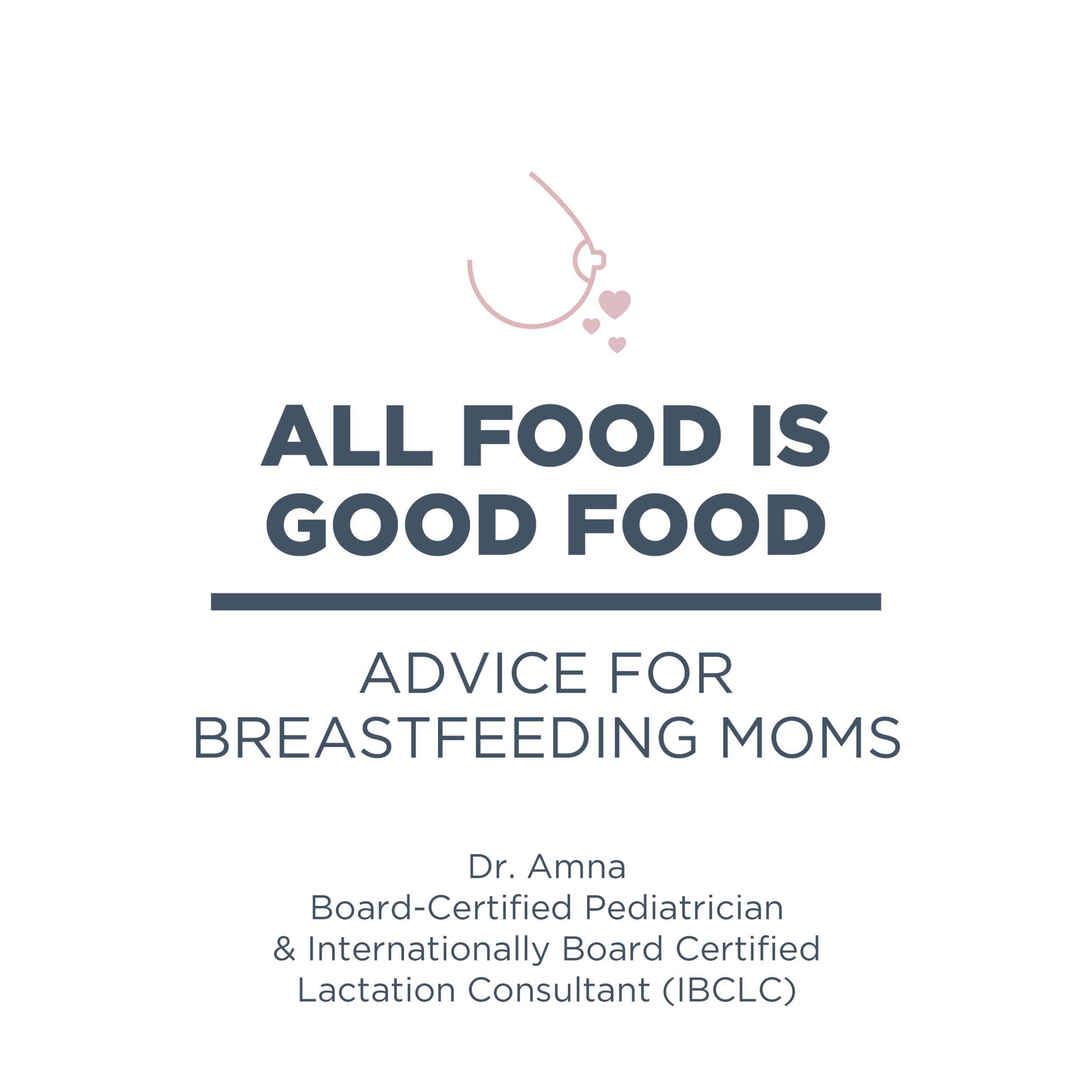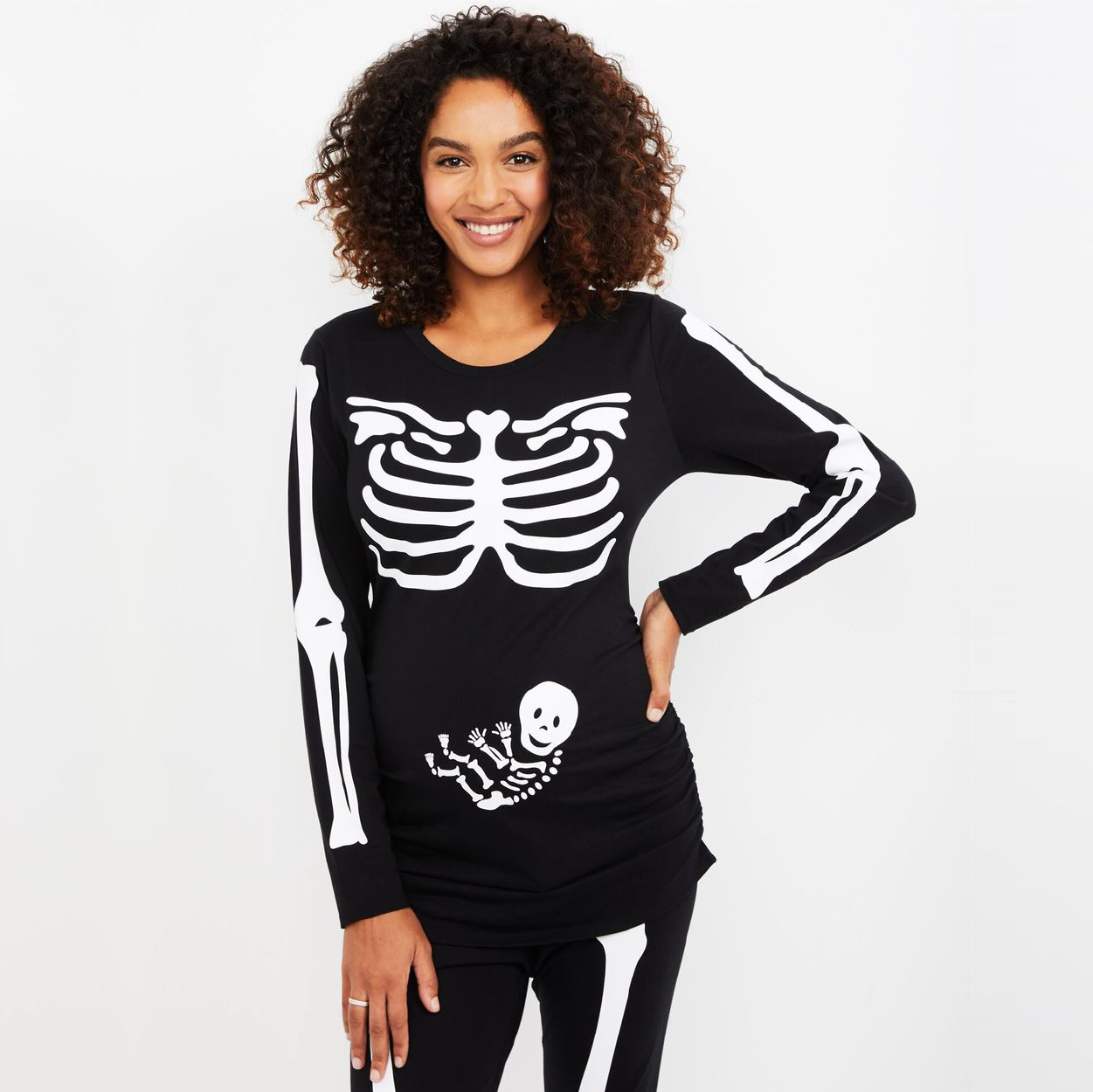
FEEDING BABY: CHALLENGES & ADVICE
PART FOUR OF A CONVERSATION WITH
DR. AMNA HUSAIN, MD, IBCLC & CALLAN, EDITOR

Dr. Amna Husain is a Board-Certified Pediatrician and an Internationally Board-Certified Lactation Consultant (IBCLC) who owns a concierge pediatric practice.
In the final part of our interview series, she and Motherhood Editor Callan, who was nursing her 15-month-old daughter, discuss challenges with feeding a newborn, postpartum mental health & more.
Callan: Is there a rhyme or reason, or a best way to breastfeed? Should you be feeding from both breasts at every feed? Can you do every other? I found that every other worked best for me, even though I was told to do both. But I don't know what the science is.
Dr. Amna: Well, you hit the nail on the head, actually. So, I mean, I'll tell you my experience, because it's similar, yet also different. I was told both breasts every feed and my baby did have a little bit of foremilk imbalance. I was an over producer and then I became an under producer when I was only feeding from one. So, I tried to feed from the other. I think it's constantly sort of a changing game. One thing I do commonly see and do advise, especially in the beginning, is trying to feed from one breast. For one feed you might feed on the left and then the next feed you'll feed from the right side. So that both breasts are being emptied sort of in an equal fashion. And like we've said before, you might have one that's the super boob and you feel like the baby gets a lot more from that side. And that's OK. Let's say you're right, is a great producer and you get a lot. And then when the left baby still seems hungry, you can bring the baby back to the right. That's totally fine. Again, it's all about feeding the baby at the end of the day. One thing that I often do see happen is as babies get a little older, then women feel a little bit more confident with what they're doing, baby's understanding what they're doing as well. You both feel like you have your breastfeeding relationship down. You've been able to nurse in a couple of different positions. That's when moms really feel comfortable saying, you know he or she still feels hungry after left breast, let's offer them the second breast. I think in the beginning, just so moms don't get overwhelmed, sometimes it's a little easier to just start with one breast so that you're able to kind of regulate.
Callan: And then what is the biggest challenge that you see most mothers and babies experiencing with breastfeeding?
Dr. Amna: Well, I think babies, I'm going to leave exempt because they have no clue what's going on. Probably their biggest challenge is surviving outside of the womb, which is a nice, cozy, pickled environment. I would say moms have the biggest challenge. And I think it's just so much mom guilt and mom shaming that goes on. It's become much more of a public issue, what moms choose to do and how they choose to do it. And it really doesn't need to be anybody else's business. I think sometimes moms can feel guilt. They can feel shamed over it, whether someone says it out loud or whether they even feel it internally. It's a really sensitive period, especially in the postpartum period, because just breastfeeding aside, women are going through a huge emotional overhaul. They are now in charge of a human being, which is no longer inside of their body, but now outside of their body, functioning independently yet dependent entirely on the mom.
But moms also have to take care of themselves. I think one thing that goes without saying very much is the postpartum period even physically on a woman is really hard when it comes to healing. I always say I wish someone had told me, hey, you're not going to be able to walk right for the first couple of days or sit without wincing in pain. Nobody ever told me how hard recovery was going to be, I knew taking care of a baby was hard, but not being able to move at my same speed and depend on my body to do the things I had gotten used to it doing. That's really difficult. Women are going through issues with their self-image. They may not be able to sleep as well. They may really feel lost in who they are physically, emotionally, mentally, and then feel additional guilt on top of that. It's really, really hard to kind of come back from that, and one thing I tell women is to have these conversations early on. So if you feel like you're going to be somebody who's anxious at baseline and has issues with anxiety in the past, then maybe you should talk to your OBGYN. Talk to your psychiatrist early on that these are issues and concerns that I have. Do I need to be talking to you? What things do I need to know about early on? Certainly, I think as a pediatrician, I'm really plugged into maternal health because I think it's interesting that we see our OB so frequently and then you don't see them for almost six weeks after. Now, we've sort of changed our guidelines by the American College of OBGYN that they see them about after two weeks. But pediatricians see mothers about three or four times in the first month. So, I certainly screen for postpartum depression.
Postpartum blues is very common. I experienced it myself and I think acknowledging those feelings is fine. And it's OK to take help when you can where you can. You know, you don't need someone to come by and hold a baby. If you actually want them to fill your dishwasher for you and do your laundry, just tell them that. That's totally fine. Do what you need to do to take care of yourself. And mom guilt will be there. A great friend of mine is a neonatal and perinatal mental health specialist and one thing she and I talked about was I don't think we'll ever get rid of the mom guilt. I think its part of us no matter what. But what we can do to help set ourselves up in a healthier way, start in a better way mentally and kind of be more proactive rather than retroactive is probably the best thing that we can kind of do.
So, if you think breastfeeding is a huge, daunting journey for yourself and you haven't even started it, that's OK. You can acknowledge it, bring up your concerns, have a consultation with your pediatrician, with a lactation consultant beforehand. Set down some goals. And if you like to set smaller goals initially, that's totally fine. Actually, some of the women who have seen make the biggest breastfeeding strides and nurse for years and years and have wonderful relationships, set super small goals in the beginning. And then when they hit that goal, they felt confident enough to move further. So set goals for yourself that you think are doable. And remember, this is going to be a time in your life that's really unlike no other. It won't feel like this forever. And I think that's kind of what motherhood is. Just when you feel comfortable at one point, boom, you're on to something else and then you're like, I'm not comfortable with this. And as soon as you feel comfortable with that, you're on to another stage, but you will hit your stride. You certainly will and you're going to feel more confident in yourself more than ever. But you have to take care of yourself. Never put yourself on the back burner. It's one of those things where you have to put your oxygen mask on first before you help others. So, make sure you're being proactive about your health as well.
Callan: I love that. I think that as prepared as you think you are before having a baby, nothing will prepare you. I'm a very laid-back person. I thought I would be fine. And I was just shocked by the physical, mental, emotional marathon that you're on after you have the baby. You think great, once I have the baby, I'll be able to get myself back physically. Where I felt in reality, the newborn stage can be so much more taxing on your body overall than pregnancy. It was just shocking.
Dr. Amna: On a personal note, you know, I had my daughter when I was in residency, so lack of sleep, no stranger to me. I knew it and I was like, that's no big deal. What got to me was, again, not really having that same mobility to be able to jump up and do what I wanted to do. Also feeling like, gosh, I don't want this person attached to me all the time. Sometimes I just want space. And that's OK. You can ask somebody, hey, can you hold the baby for a minute? And I think that's one thing that I used to be so nervous about someone else taking care of the baby. But why? I should feel better about that. My husband, my mother in law, my mother, I should feel better about that. And I think we learn lessons along the way. People often say that you become better at being a mother with each subsequent child or pregnancy. And I think that's also our confidence levels that are improving.
Certainly, I wasn't a stranger to postpartum blues. I remember when I had my maternity leave, one thing I promised myself was every day I was going to take a shower. Gosh darn it, I was not going to be that person who sat around in pajamas all day. Even if I showered and changed into pajamas, fine. But I didn't sit around in pajamas that I wore overnight. And it made me feel good too. So, every day, around 6:00 am or 5:00 a.m., whatever. I used to get up and shower. And I remember one morning, all the hot water was coming down on me, I started crying and I'm like, why am I crying? And I had to think and put my objective medical brain on. I said, OK, this is postpartum blues, Amna. You know, exactly what this is. And I told myself I was going to keep track of it and keep a check on it and see how long my emotions lasted. And luckily, they did resolve, and I felt better, and I felt like myself again. But it's OK to feel those things. And I actually, after having them big cry in the shower, I felt better. But I did certainly talk to my mom about it and I talk to my husband about it. Those are not things like you kind of keep bottled in because it's just not healthy really in the long term. And I think one good thing is we are all talking about maternal mental health as a community so much more now.
Callan: If you wouldn't mind sharing, I was fascinated by the hormones that you're passing to your baby and that your baby is flushing out when they're newborn. Like, my daughter had crazy baby acne, which was shocking to me. Like on no! My poor baby. So, can you talk about just like what is actually happening because you feel so emotional and then you can physically see it affecting your baby.
Dr. Amna: So let's talk about that, because that's a common misconception. So, when we talk about hormones, first, I like to talk about estrogen that's passing through to the baby. So, if you have a baby girl or a baby boy, you might sometimes feel like their hips might click or clack sometimes. And sometimes when pediatricians are testing it, they'll let you know that they're a little flexible in their hips. This actually due to the estrogen that you're passing on to your baby. Now, some baby girls, and I like to tell parents this early because they'll ask, why isn't my daughter having some mucus discharge? That's actually also her sort of reacting to the estrogen that you passed on to her. She might even have some small amounts of blood in her diaper. And it's actually her having a small period. Again, it doesn't last more than like a day or two days at most. But those are some of the things that actually have been going on in utero, your baby has been exposed to your estrogen levels that were very high during pregnancy. And that's her reacting to it. Now, that's one thing alone from the hormones.
Now, baby acne is very different than what we would call like infantile acne. Baby acne is actually not due to hormones at all. It's actually due more to what we think is an inflammatory reaction to just yeast on the skin. We don't actually treat it the same way we treat regular adult acne either. We actually treat it with usually steroids or antifungals if they even need to be treated. Infantile acne actually occurs way later on. So close to six to seven months of age when the baby's been used to being out of utero, everything's all good. This is actually the baby's hormones that are surging and causing this so that we actually do treat similar to adult acne. So, this is a little bit of medical lingo to kind of clarify. So you might hear neonatal or baby acne. Those are the same things. That's an inflammatory reaction to yeast on the skin. Infantile acne happens a couple of months later down the line, and that actually is due to the baby's hormone levels surging. Now, the hormones that we pass on, that's going to be more the ligament laxity and the small amounts of blood or mucus you see from in a little girl's diaper. You don't always see it, but you may.
Callan: My daughter had the baby period, and it was like, woah! Someone warned me that might happen, but it was just shocking to see.
Dr. Amna: It is incredibly shocking. Even when I knew it! Even meconium coming out of my daughter was very shocking. I agree.
Callan: Any other pieces of wisdom or advice that you want to share?
Dr. Amna: I think women have to remember, first of all, that they set high goals for themselves sometimes and we as women are very high achieving. I'm seeing more and more women being able to balance careers and motherhood and just take on more entrepreneurial roles, which is amazing. But motherhood shapes you in a completely different way. No one pulls you aside and says this is Bootcamp for Moms. And I don't even know if I would ever attend that either, because it sounds awful. It's OK to feel a little overwhelmed. It's OK to set small goals for yourself, set yourself up for success. That's the way I try to think about it. And this is a job that's going to kind of last for a while and constantly change. So, don't worry about if you feel like you're having a rough day or rough couple of days. You know, I always say look at the forest and not the trees. And it's really hard to do that at the beginning, trust me, because I was the same way with tracking things on apps. And I think there's nothing wrong with tracking things on apps. But try to look at the big picture, try to look at a week and not a day and just take things in stride.
And I promise the first six weeks feel crappy to everybody and then you'll get out of it and you're like, wow, I think baby and I have hit a rhythm and you'll feel a lot better and you'll only get better and better. Baby is going to hit more and more milestones, become more and more accustomed to you. You're going to become more accustomed to him or her. Things are only going to get better from here.


